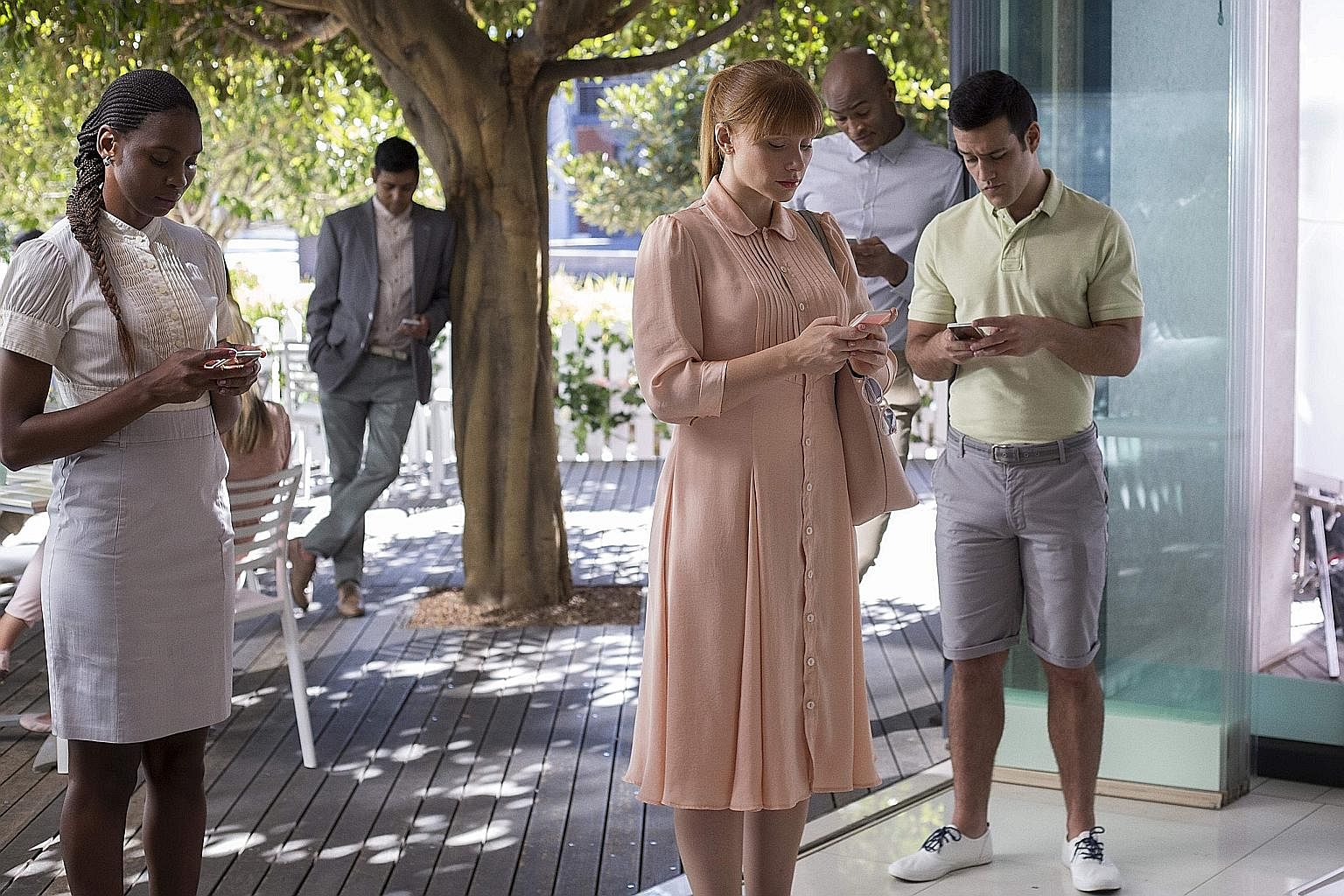The third season of Black Mirror premiered last week on Netflix and I could not be happier. The series has everything the type of viewer like me likes: It believes that we are all doomed and everything we like about technology is going to get us there faster.
The series ran for two seasons, with a total of six episodes, on British television between 2011 and 2013. There was a Christmas special a year after it ended, then it looked like that was it.
The two seasons reflect the personality of its showrunner, the writer and broadcaster Charlie Brooker. On television, his personality is that of a particularly cranky insult comedian - that acid has dripped into Black Mirror.
It has been described as "dystopian science-fiction", but that would be to confuse it with The Hunger Games (2012) or The Terminator (1984).

In Brooker's world, that advertising line about global communications - that it lets you "be anywhere, at any time" - is not a promise, but a threat.
Season 3's opener Nosedive imagines a society where karma points, similar to YouTube thumbs-ups and Facebook likes, determine where you live and work and, therefore, the direction of your life.
As with all the stories in the anthology - each episode is self-contained - the time period is not 50 or a hundred years from now, but the day after tomorrow.
In that world, karma points are more important than money and they can be bestowed only by the crowd. Brooker has heard the phrase "the wisdom of the crowds", but his take on it is that crowd-think also accelerates the downward drive to stupidity; if you have seen a terrible, factually incorrect Facebook post from a Trump-leaning source get thousands of upvotes, you have glimpsed Brooker's future.
There are other episodes that illustrate that dumbness can be unlocked by a smartphone, but it is enough to say that nothing on television or the movies is as unsparing or incisive as Black Mirror.
HBO's Westworld, a drama set in a theme park for adults that is populated by androids, is making a try at science-fiction that comments on how we might live tomorrow when once again, the people of the civilised world get to own slaves.
When later Westworld episodes stop being so vague and have something to say about how we live today - with a subclass of flesh-and-blood people who do the jobs we think are beneath us - it would reach the same quality status as Black Mirror.

